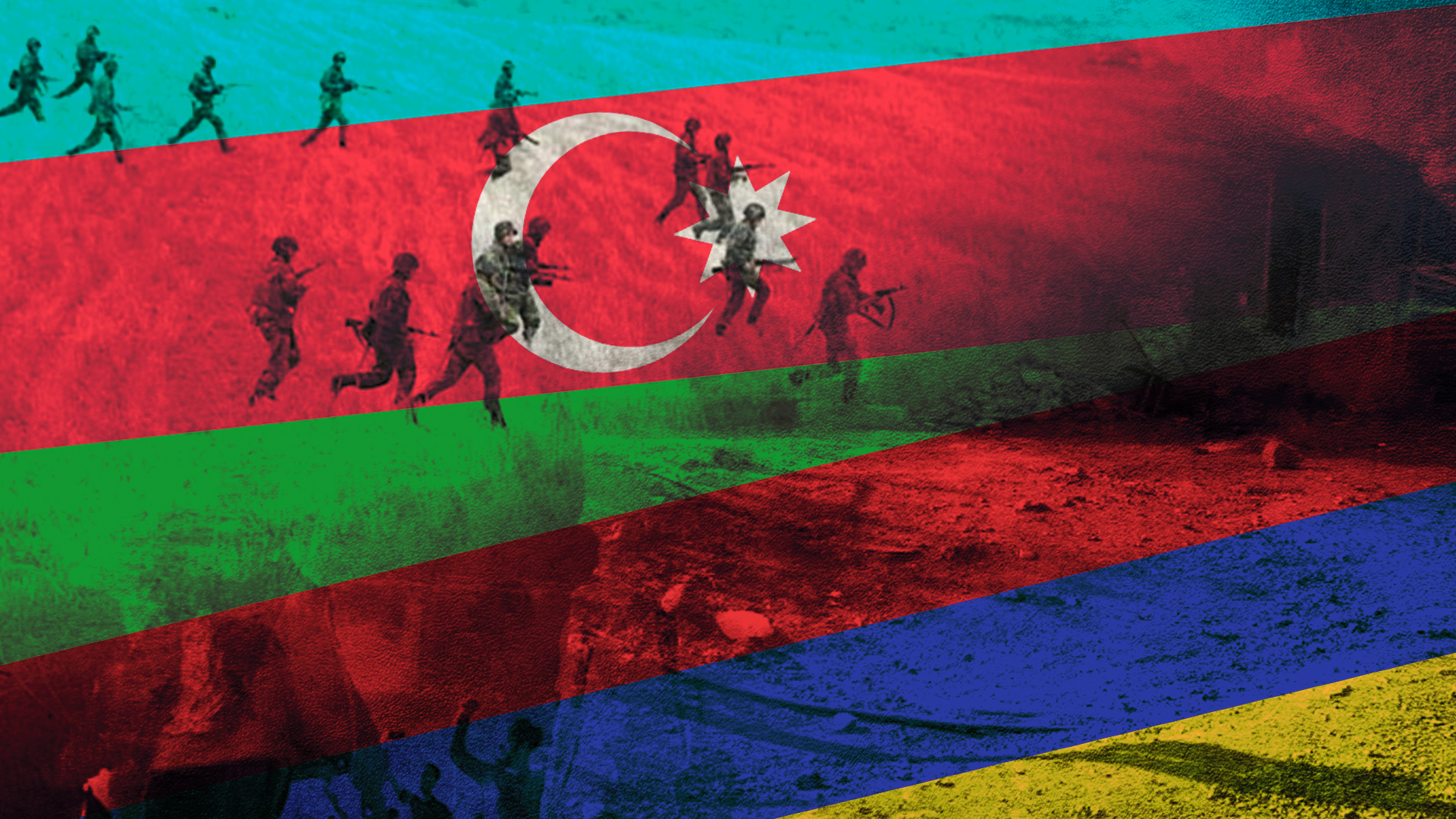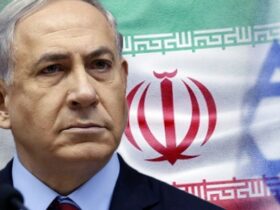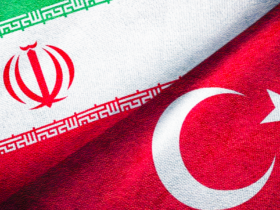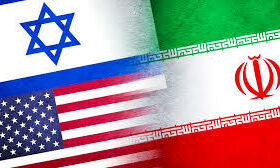Azerbaijan has crowned its own War of Independence with a decisive victory, managing to take back the territories lost and had been occupied for almost 30 years after years of war in the short time period of a month and a half. As a result, this victory was accepted and documented by both sides of the conflict.
Of course, the largest and the most important factor of this victory would be the Baku Administration, the Azerbaijani Army, and the Azeri Turks themselves who are also a part of the greater Turkic nation.
However, apart from all the internal dynamics, two external factors also played an important role in achieving this victory.
Turkey’s support
The first of these factors was Turkish support for Azerbaijan. The military cooperation between Turkey and Azerbaijan dates back to a long time ago, but the TurAz Eagle military exercise, which was held by the two countries in August (i.e. shortly before the recent conflicts began) deserves particular attention. It was clear that this military exercise has been a part of the preparation for Azerbaijan’s final War of Independence.
Turkey’s support in the field of military technologies should also not be forgotten. The effect of Turkish drones on the conflict cannot be underestimated.
Of course, Ankara’s diplomatic influence was also an important element on the way to the victory. The recent developments in the Turkish-Russian relations also turned tides in favor of Azerbaijan in the Karabakh conflict.
Turkey’s moral support and the message it gave of being always ready for military assistance has also given Azerbaijan the confidence it sought.
Russia’s role
The second major factor was Russia’s attitude. In fact, Russia somewhat helped Azerbaijan by not intervening. We have already discussed which direction Moscow-Yerevan and Moscow-Baku relations would take in context of the Karabakh dispute after the border clashes in Tovuz in July.
The Kremlin’s disrupted relations with the Pashinyan administration have caused Baku’s and Moscow’s common geopolitical interests to harmonize in the Southern Caucasus. There was also another problem in Southern Russia that was constantly causing instability and it was needed to be resolved. Thus, Azerbaijan, which has been gaining strength by its economy and its military, was surely not going to accept this situation unless justice was properly maintained on the Karabakh issue. On the other hand, this issue remaining unsolved has encouraged the pro-western Pashinyan administration to take aggressive steps on a regular basis.
The war is now over, and so we can write about it more frankly. Although this is not a confirmed fact but rather an opinion supported by some good evidence, we can say that the current situation has been the result of a prior agreement between Baku and Moscow.
It was understood that Azerbaijan was going to take back Karabakh, which would lead to the overthrow of Nikol Pashinyan, the final resolution of the Karabakh conflict and another factor of instability in Southern Russia will therefore be eliminated. In addition to that, Azerbaijani-Russian relations will reach a higher level. It is very unlikely that Ankara would not play a role somewhere on a possible Moscow-Baku axis.
Messages from Moscow
The course of the war took place in parallel with this. The Azerbaijani army has advanced, and Pashinyan has repeatedly called Putin almost every day. Russian state television showed that Putin did not even answer these phone calls and all help requests from Yerevan were rejected. Moscow’s attitude was very clear: “they got what they deserved.”
Actually, the first message from Russia before all the other messages came from an unexpected person, the highly influential Russian businessman Yevgeny Prigozhin, who is alleged to own the private security company Wagner Group, at the beginning of the war. Prigozhin pointed out that with Pashinyan’s rise to power, a large number of American NGOs started to operate more actively in Armenia, and that “Turks have the right to legally intervene in the Karabakh conflict, if they keep it outside of the Armenia proper.” The highly influential Russian businessman ended his remarks with following words:
“I do not think that there is any reason to seriously criticize Erdogan right now, because it does not seem to be an aggressive step, all he is doing is to protect the national interest of its own people. If this is so, he has full legitimacy.”
“Unfortunately, these are not Armenian lands!”
Armenia is a member of the Collective Security Treaty Organization (CSTO), of which Russia, Belarus, Kazakhstan, Tajikistan and Kyrgyzstan are also members. If one of these countries gets attacked, other countries also have the obligation to show military support. Russian officials, and especially Putin himself, repeatedly stated that the conflict zone is not a part of the Armenian territory, so they do not have the obligation to support them. They repeated this statement often and in a rather cynical tone.
In addition to that, the CSTO has announced in a statement that Azerbaijan has no aggressive intentions against the territories of the Armenia proper.
Russia has only sent a symbolic number of troops to the Azerbaijani-Armenian border, most of which were deployed in the military base in Gyumri. Of course, some misinformed people in Turkey said “Russia is trying to stop the advance of Azerbaijani troops.” This move made no sense, it was seen as something of a joke to the Armenian leadership. It literally meant “Let the Azerbaijani Army come this far, liberate all the territories in occupation including Karabakh, but if they try to invade Armenia proper as well, then we will not allow that.” It was clear from the beginning that Azerbaijan would not attack Armenia proper.
Yerevan also invited the Russian military to Karabakh as peacekeepers in the early stages of the conflict. The Kremlin responded saying that “this is Azerbaijani territory, we cannot come without their permission.”
Victory was in the Azerbaijani Army’s hands
In short, Armenia was left alone in the midst of a conflict. They did not get what they hoped for from Russia, and the US was too busy with its presidential elections; what could they do across the ocean anyways? France, on the other hand, could not even prevail over the pandemic at home. So all that Western “support” did not do any good on the field.
This victory was won not despite Russia, but rather because of Russia. This is not just an opinion, it is a fact. Moscow completely agreed that Karabakh would be liberated by Azerbaijan, and the victory was only up to the success of the Azerbaijani Army on the field.
The mission was accomplished.
In this victory, there are important lessons to be learned by Armenia and other important lessons to learn for Azerbaijan.
The administrative experience of the Aliyev family
Let us start with Azerbaijan. Baku has learned a lesson not only in the military aspect, but in diplomatic and strategic aspects as well. They pursued a line of working with Russia and Iran, even cooperating with them. They did not drive or even let any hostilities towards Russia and Iran get in the way, unlike some careless people in Turkey who do it in favor of hostile foreign entities without any solid reason.
Look at the speeches and approaches of the President Ilham Aliyev, one of the main architects behind the victory. They already come from a significant administrative experience as a family. Although Azerbaijan is a relatively young state, the Aliyev family have been in governing seats for much longer.
Father Aliyev was a member of the Soviet Politburo. He was among the few lead figures in one of the world’s two largest superpowers. In fact, there are still some people in Russia who say, “If Heydar Aliyev had taken over the government instead of Gorbachev, the USSR would have not collapsed.” Whether this is a realistic assumption or not, it is clear that the Aliyev family is made up of realistic statesmen who actually know the regional dynamics, the power balances and they have an administrative experience, older than the actual age of the Republic of Azerbaijan itself.
The strategy that brought victory to Baku
Ilham Aliyev also determined his geopolitical positioning according to this strategy. He has declared many times that the opponent was not only Armenia, but also “Soros’ henchmen.” Ilham Aliyev has explained many times that the Karabakh separatists have sparked the fuse which led to the collapse of the USSR in favor of the West. Aliyev has gained the favor of Russia with this mindset, and isolated Armenia by throwing it at the hands of the West.
In parallel with this, Baku did not respond to Armenia’s provocations to take this matter to the CSTO. The Aliyev administration did not fall into the trap of rocket attacks on civilian settlements which were launched from Armenia proper, and not from the occupied territories. Yerevan tried to expand the battlefield and to pull Azerbaijan into Armenian territory. Its goal was to attack Baku and drag the CSTO in the conflict. But this plan also failed.
Baku skillfully managed the incident of a Russian helicopter being shot down just a few hours before the ceasefire was signed on November 9. They immediately accepted that they had shot down the helicopter, announced that this was done by accident and apologized for it and then announced that they were ready to pay reparations for the damage. An investigation was launched and the guarantee that those who were responsible would be punished was given to Moscow.
The Russian Foreign Ministry responded by saying that they accepted Baku’s apologetic attitude positively, and the process moved on undisturbed -Let us make a side note here, the issue of a ceasefire and the conditions for it had already been on agenda and had already been discussed before the helicopter was shot down. Therefore, the discussions of a ceasefire had nothing to do with the helicopter incident.
Lessons from the Elchibey era
Aliyev acted with the same logic in regard to Iran as he had with Russia. This had to be carefully considered: it does not matter if you love them or hate them, but the rhetoric of “unification with Southern Azerbaijan” during the Elchibey era pushed Iran toward Armenia’s side. Back then, Karabakh and many other lands were lost on top of Southern Azerbaijan being taken from Iran. It is clear that Aliyev learned his lesson from all this.
Therefore, it is worth understanding that the hostility towards Russia and Iran is not worth a penny in victorious Azerbaijan, as some groups in Turkey don’t seem to understand.
These are certain lessons we need to learn from Azerbaijan, and, as we mentioned above, Armenia also has some lessons to learn from these events.
Lessons for Armenia
As a tool for imperialist plans, any attempts against the countries in the region have resulted in disappointment. Dashnak Armenia had this experience exactly 100 years ago – they were the most important element of the Caucasus Wall plan by the British, and they pursued an aggressive and a chauvinistic attitude which also threatened the existence of Turkey, Soviet Russia and Azerbaijan. As a result, with the common military and political will of the three countries its existence was ended with the coordinated operations which began in September 1920 and ended in November, a meaningful coincidence.
Unfortunately, the Pashinyan administration has provided the same experience to the Armenian people once again. This small adventure, which was provoked by the West, has dealt heavy damage to the Armenian people.
Armenia has no other choice but to establish good relations with Turkey and Azerbaijan for peace, prosperity and for economic development. Yerevan now has to recognize the sovereignty and the territorial integrity of its neighbors and has to give up on following aggressive policies in favor of the others.
Another really important reason for the Armenian Army was their effectiveness being curbed due to high levels of desertion. Video evidence of this has been released to the press during the war, and Pashinyan also admitted that in a speech he made through his social media account after the ceasefire went into effect.
The Armenians were not fighting for their own land, their parents were just sending their sons to hold out the occupation. While the Azeri Turks fought a righteous war, the Armenians realized they were not. It was impossible for it not to be reflected in their fighting spirit and morale. There were dozens of deserters who realized they were up against the bravery and the will of those defending their homeland.
Therefore, it was only natural that the people did not want to fight for Soros against those fighting for their own homeland. Similar confessions were also made by the Armenian prisoners of war. Many surrendered themselves to the Azerbaijani forces.
Aliyev had described Pashinyan as one of “Soros’ henchmen” as I mentioned above, and the Armenian demonstrators who poured into the streets and raided the parliament after the ceasefire was signed also raided the office of the Soros Foundation the next day.
Yes, Pashinyan will soon be gone! We now hope that a new government will replace what we have learned from 100 years of experience.
Azerbaijani territorial integrity is under guarantee
The ceasefire agreement suggests the full establishment of the territorial integrity of Azerbaijan: it would not have been possible for Aliyev to sign it otherwise. The issue of retreating from the rayons under occupation is still on the table.
Karabakh’s indigenous Armenian population will remain. Aliyev has already said that they were citizens when the war began. He even stated that they agreed to open a humanitarian corridor between Karabakh and Armenia. These were Aliyev’s proposals months ago.
A side note: Karabakh does not have a border with Armenia. The rayons of Khalbajar and Lachin were between these regions. These rayons were also under occupation, and they will now be liberated. A corridor will be opened to ensure the Armenian humanitarian ties with the ethnic Armenian population of Karabakh, but this corridor will not stretch all the way to the city of Shusha, and will only go to the city of Khankendi (Stepanakert). Russian troops will be responsible for the security of this corridor.
“The Turan Corridor”
Another corridor is being opened between Nakhichevan and Azerbaijan proper to balance this out. So, Turkey has become a direct neighbor to the capital Baku. In Azerbaijan, this corridor has started to be called “the Turan Corridor”.
Azeri Turk defectors will also return to Karabakh. Their homelands now wait for thousands of displaced people to settle back.
There is not a single word in the ceasefire agreement regarding the status of Karabakh. Kremlin spokesperson Dmitry Peskov has said that the issue would be resolved based on UN resolutions and in accordance with the international law. Therefore, there is no other way possible for Karabakh to have a status other than to be integrated back to Azerbaijan.
Joint Observation and Inspection Center
In the end, a Joint Observation and Inspection Center will be established to check that the terms of the ceasefire have been successfully implemented. Turkey and Russia will work together at this center. The details of this center will be determined by a later agreement between Turkey and Russia.
It should be underlined that this is an official text containing the terms of the ceasefire. So in some sense, it is the document of Armenia’s surrender. The process will no longer proceed by gunfire, but through diplomacy. Putin has stated that Turkey should also take part in this process, back during the last days of the conflict.
The Atlanticists are out of the game, and Turkey has entered the scene
One thing is for sure, and it is that the Minsk Group is now practically out of the equation as well. The losing side here is not only Armenia, but also the other members of the Minsk Group such as the United States and France, with the exception of Russia. The Atlantic camp has taken a serious blow in the Southern Caucasus.
A new regional initiative has been formed, and Turkey is a part of it. Here, the insecure mindsets that are trying to underestimate the victory of Azerbaijan with the support of Turkey will not get what they hope for in the coming period.
Whatever the circumstances, Turkey will be wherever Azerbaijan is, and Turkey will be a part of this resolution process. There is no option on the table other than the protection of the territorial integrity of Azerbaijan.

















Leave a Reply